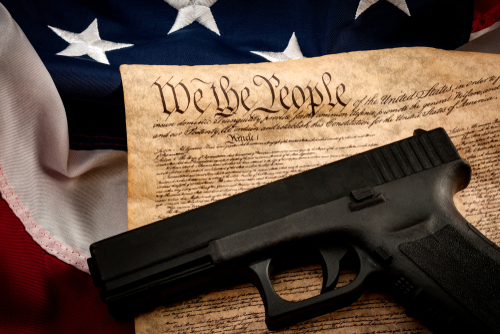
Judge Rules DUI Conviction Doesn’t Strip Gun Rights
In a recent decision, Judge John Milton Younge upheld the right of an individual with a DUI conviction to possess a firearm. The case centered around Edward A. Williams, who found himself denied the ability to possess a gun due to a DUI conviction dating back to 2005.
Loss of Gun Rights Due to Misdemeanor DUI Conviction Unconstitutional, Judge Rules https://t.co/ljZfDu9JR0
— Tom Gresham (@Guntalk) November 16, 2023
Williams had been convicted of DUI at the highest level of intoxication, a first-degree misdemeanor carrying potential penalties of up to five years in prison. While he was permitted to serve his sentence of 90 days to two years at home due to a medical condition, the DUI conviction triggered the forfeiture of his gun rights under federal law, specifically 18 U.S.C. § 922(g)(1).
Younge’s decision was guided by a thorough evaluation of Section 922(g)(1) in the context of the Bruen case from 2022, in which the Supreme Court made it clear that an individual’s conduct could only be outside the protection of the Second Amendment if a firearm regulation aligned with the historical tradition of the United States.
Younge emphasized, “Prohibiting Plaintiff’s possession of a firearm due to his DUI conviction is a violation of his Second Amendment rights as it is inconsistent with the United States’ tradition of firearms regulation. The Constitution’ presumptively protects’ individual conduct plainly covered by the text of the Second Amendment, which includes an individual’s right to keep and bear arms for self-defense.”
Referencing the landmark Heller case from 2008, Younge stated, “Protected individuals presumptively include all Americans,” emphasizing that the Second Amendment does not exclusively belong to ‘law-abiding citizens’ but extends to all people, even those with criminal histories.
In his concluding remarks, Younge noted that there is no valid demonstration of the idea that stripping an individual of their right to possess a firearm due to a past DUI offense aligned with the United States’ historical tradition of firearm regulation. As a result, he ruled that applying Section 922(g)(1) to Williams constituted a violation of his Second Amendment rights.
Younge’s ruling comes after Williams lost the lawsuit he initially filed in 2017, in which he asserted that a lifetime loss of gun rights for a non-violent misdemeanor conviction infringed upon his Second Amendment rights.




